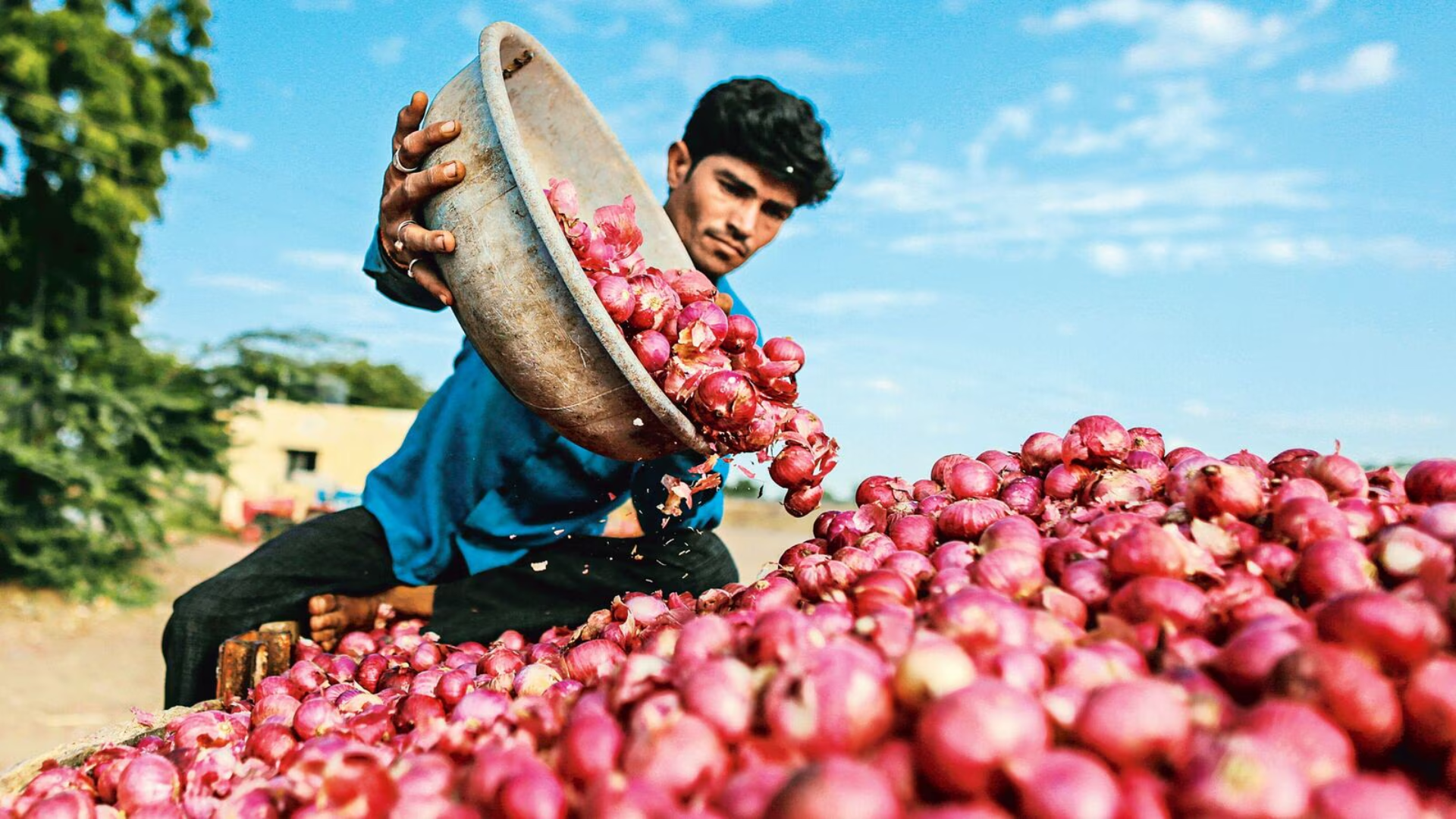In a recent move, the Indian government has implemented a 40% duty on the export of onions and exempted duty on the import of desi chana until March 31, 2025. Additionally, the duty exemption on imports of yellow peas, covered by the bill of entry issued on or before October 31, 2024, has been extended.
According to a notification issued by the finance ministry, these changes will come into effect from May 4, 2024.
Currently, the export of onions from India is banned, except for shipments to friendly nations like the UAE and Bangladesh, where a specified quantity of onion exports is permitted.
This decision follows a series of measures taken by the Indian government to stabilize onion prices and manage domestic supply. Last August, India had imposed a 40% export duty on onions, effective until December 31, 2023.
ALSO READ : Air India Plans Resumption Of Delhi-Tel Aviv Flights On May 16
These recent policy changes aim to regulate the export and import of key agricultural commodities, ensuring a balance between domestic availability and international trade obligations. By imposing export duties on onions and providing duty exemptions for imports of desi chana and yellow peas, the government seeks to protect domestic consumers from price fluctuations while supporting domestic farmers.
The extension of duty exemptions for imports of yellow peas and desi chana underscores the government’s commitment to facilitating imports of essential commodities to meet domestic demand and maintain food security.
Overall, these measures reflect the government’s proactive approach to managing agricultural trade policies, with a focus on addressing market dynamics and ensuring stability in commodity prices. As India continues to navigate challenges in the agricultural sector, such policy interventions play a crucial role in safeguarding the interests of both producers and consumers alike.


















